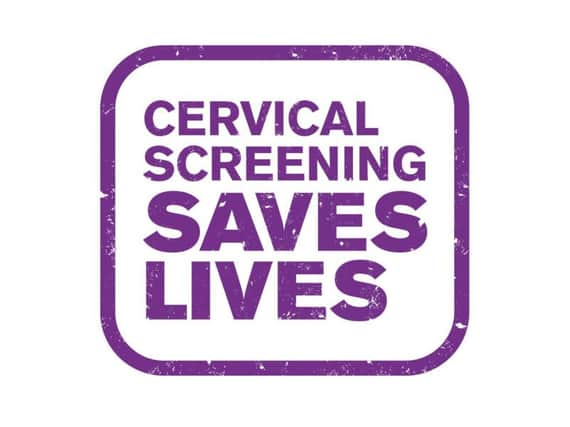New cervical screening campaign to reverse downward trend in uptake of appointments in Lincolnshire


A major new campaign has been launched in Lincolnshire aimed at reversing the downward trend of the number of women attending cervical screening check-ups.
The campaign called ‘Cervical Screening Saves Lives’ will encourage women to respond to their cervical screening invitation letter, and if they missed their last screening, to book an appointment at their GP practice.
Advertisement
Hide AdAdvertisement
Hide AdAround 258 women are diagnosed with cervical cancer in the East Midlands each year and around 69 women die from the disease, according to Public Health England. It is estimated that if everyone attended screening regularly, 83 per cent of cervical cancer cases could be prevented.
New research from PHE shows that nearly all women eligible for screening would be likely to take a test that could help prevent cancer, and of those who have attended screening, nine in 10 would encourage others who are worried to attend their cervical screening. Despite this, screening is at a 20-year low, with one in four eligible women (those aged 25 – 64) in the UK not attending their test. The screening rate for Lincolnshire and the East Midlands is 74.5 per cent, below the national standard of 80 per cent.
The new PHE campaign provides practical information about how to make the test more comfortable and gives reassurance to women, who may be fearful of finding out they have cancer, that screening is not a test for cancer. Regular screening, which only takes a few minutes, can help stop cervical cancer before it starts, as the test identifies potentially harmful cells before they become cancerous and ensures women get the right treatment as soon as possible.
PHE research shows that once women have been screened, the vast majority of women feel positive about the experience, with eight in 10 stating they are glad they went and that they were put at ease by the nurse or doctor doing the test.
Advertisement
Hide AdAdvertisement
Hide AdAgnes Belencsak, Screening and Immunisation Lead, PHE East Midlands, said: “It’s worrying to see a decline in women attending for their screening appointments and there maybe a number of reasons that women put off going for their appointment, including embarrassment or concerns over the procedure itself.
“A smear test is the best way to detect abnormal cells in the cervix and early detection and treatment is vital so abnormal cells don’t turn into cervical cancer. I would encourage anyone who is invited for screening who have concerns to talk to their nurse at their GP’s beforehand. No question is silly or a concern too small and they will make you feel more at ease with the process.”
Dr Dawn Harper is supporting the campaign and comments: “Cervical screening is one of the most important things women can do to protect themselves from the risk of cervical cancer. Screening can stop cancer before it starts and saves thousands of lives every year.
“Some women are nervous or embarrassed about the test and put off having it done. While it’s not the most enjoyable experience most women say it wasn’t as bad as expected and were glad they did it. The tests are usually done at your GP surgery by female nurses who are trained to make women feel more comfortable and talk them through the process. I cannot stress how important it is not to ignore your screening letter – it’s a five minute test that could be lifesaving.”
Advertisement
Hide AdAdvertisement
Hide AdThe campaign is also being supported by leading charities across England including Jo’s Cervical Cancer Trust. Activity includes new advertising on TV and other channels, together with the cascade of information through GP surgeries and pharmacies.
For further information about cervical screening, search ‘NHS Cervical Screening’ or visit www.nhs.uk/cervicalscreening.